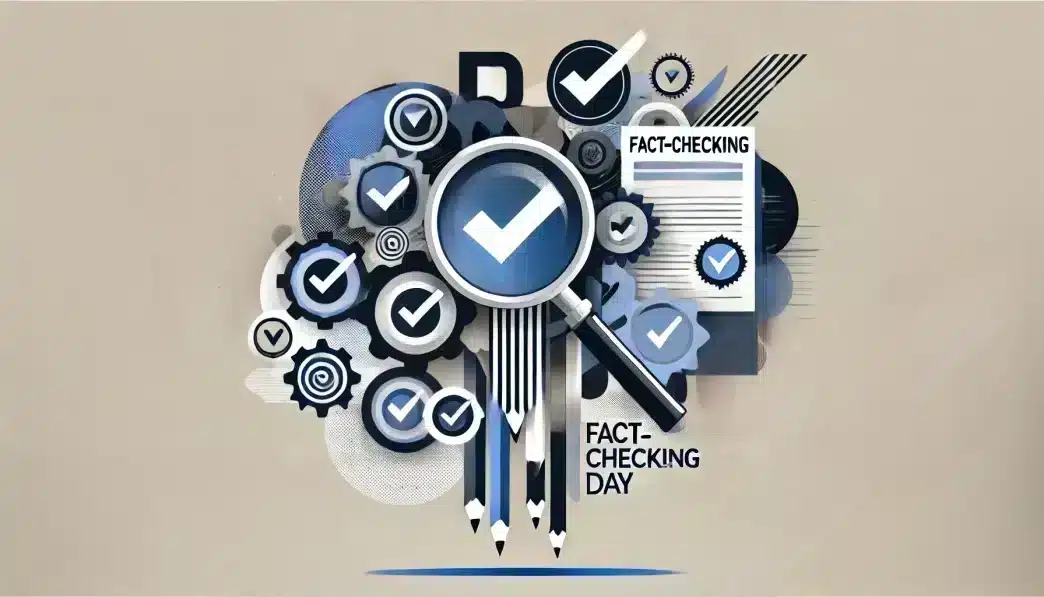What is International Fact-Checking Day?
International Fact-Checking Day is observed annually on April 2 in countries around the world to promote media literacy and the importance of verifying information. Established in 2016 by the International Fact-Checking Network (IFCN) at the Poynter Institute, the day serves as a reminder to question sources, combat misinformation, and support fact-based journalism. It was deliberately placed the day after April Fool’s Day to contrast truth with deception, emphasizing the importance of facts in an era of widespread disinformation.
History and origin
International Fact-Checking Day was created in response to the growing spread of misinformation, particularly in digital media and politics. The idea was first introduced at a 2014 conference at the London School of Economics and Political Science, where fact-checkers and journalists discussed the need for global awareness about verifying sources. It officially became an annual observance in 2017, as the demand for fact-checking increased following major political events, including the 2016 U.S. elections and the rise of online conspiracy theories.
The day is now recognized worldwide, with fact-checking organizations, educators, and journalists using it as an opportunity to teach critical thinking, expose falsehoods, and encourage responsible information-sharing. Social media campaigns, workshops, and public discussions highlight the role of fact-checkers in protecting the integrity of information.
Who observes International Fact-Checking Day?
- fact-checking organizations that work to debunk misinformation and educate the public
- journalists and media outlets committed to accurate reporting and ethical journalism
- educators and schools incorporating media literacy and critical thinking into their curricula
- policymakers and government agencies promoting transparency and factual information
- the general public who use fact-checking tools and resources to verify news and social media claims
Slogans and themes
International Fact-Checking Day highlights accuracy, media literacy, and responsible information-sharing. The observance promotes skepticism toward unchecked sources and encourages critical analysis of claims. Common slogans include “Facts Matter,” “Check Before You Share,” and “Truth Over Misinformation.” Past themes have focused on the role of fact-checkers, the dangers of fake news, and how misinformation spreads through social media.
Colors, symbols, and patterns
colors
- blue and white, representing integrity, trust, and transparency
- red, used to symbolize warnings against misinformation and fact-checking alerts
- yellow, often associated with caution and skepticism in media literacy campaigns
symbols
- magnifying glass, representing the scrutiny and analysis of facts
- checkmark, symbolizing verification and accuracy in reporting
- exclamation mark inside a triangle, used in fact-checking alerts to signal misinformation
patterns
- grid or lined backgrounds, symbolizing the structure and organization of fact-based research
- digital-style graphics, representing online fact-checking tools and modern media
- speech bubbles with question marks, highlighting the importance of questioning sources
Most used hashtags
- #factcheckingday
- #factsmatter
- #stopmisinformation
- #medialiteracy
- #verifybeforesharing
How to observe International Fact-Checking Day
- participate in fact-checking workshops or online courses to improve media literacy skills
- use fact-checking websites like Snopes, FactCheck.org, or PolitiFact to verify news claims
- educate others about misinformation by sharing reliable sources and debunked myths
- challenge misinformation by correcting false claims in conversations and online discussions
- support independent fact-checking organizations by following and promoting their work
Why is International Fact-Checking Day important?
International Fact-Checking Day is a crucial reminder of the role truth plays in society. In a world where misinformation spreads faster than facts, the ability to critically evaluate information is essential for informed decision-making. The observance empowers individuals to recognize bias, distinguish between credible and false sources, and contribute to a culture that values truth and transparency.
Features
April 2: Fact-Checking Day
Why do you keep falling for the same type?
Read the article Lovemaps: the hidden blueprint of our love.

